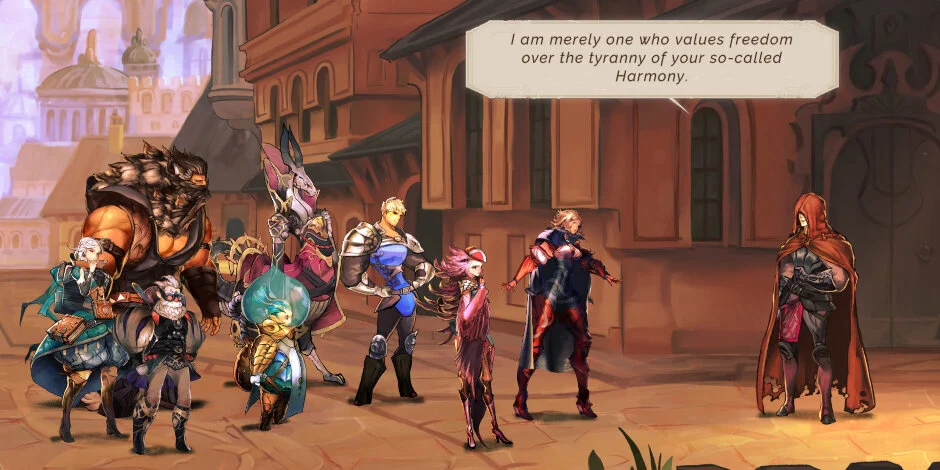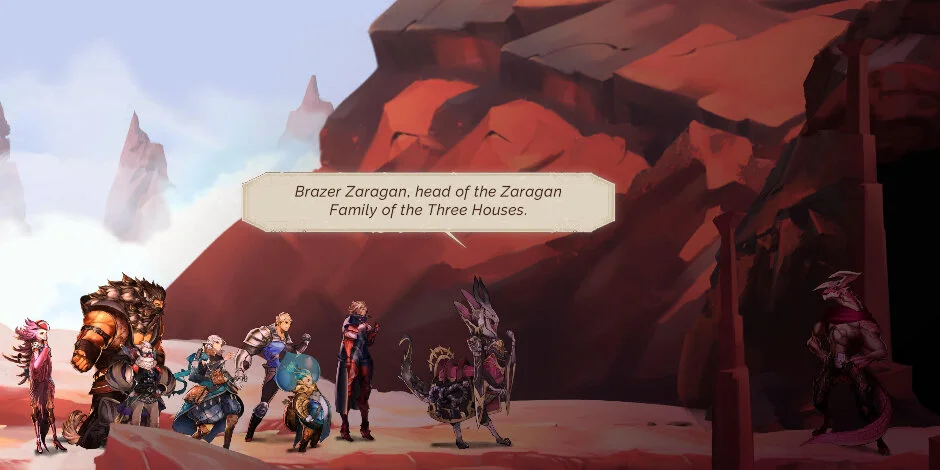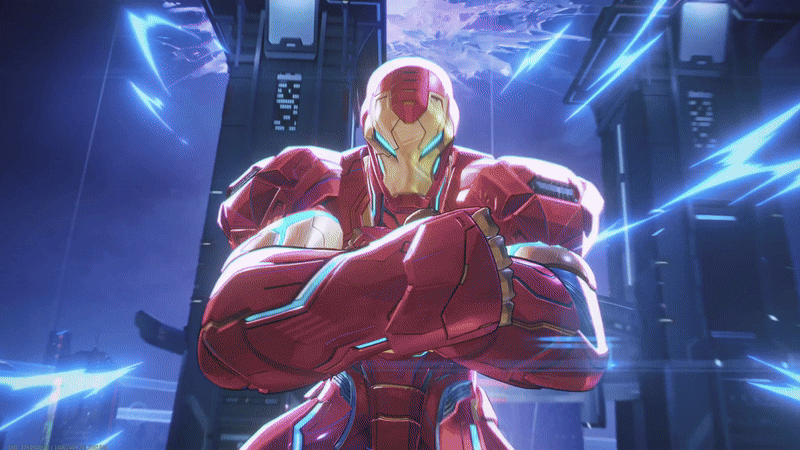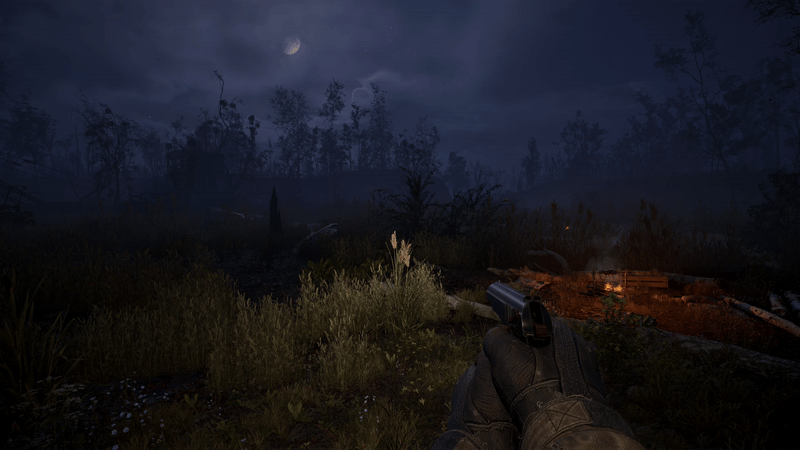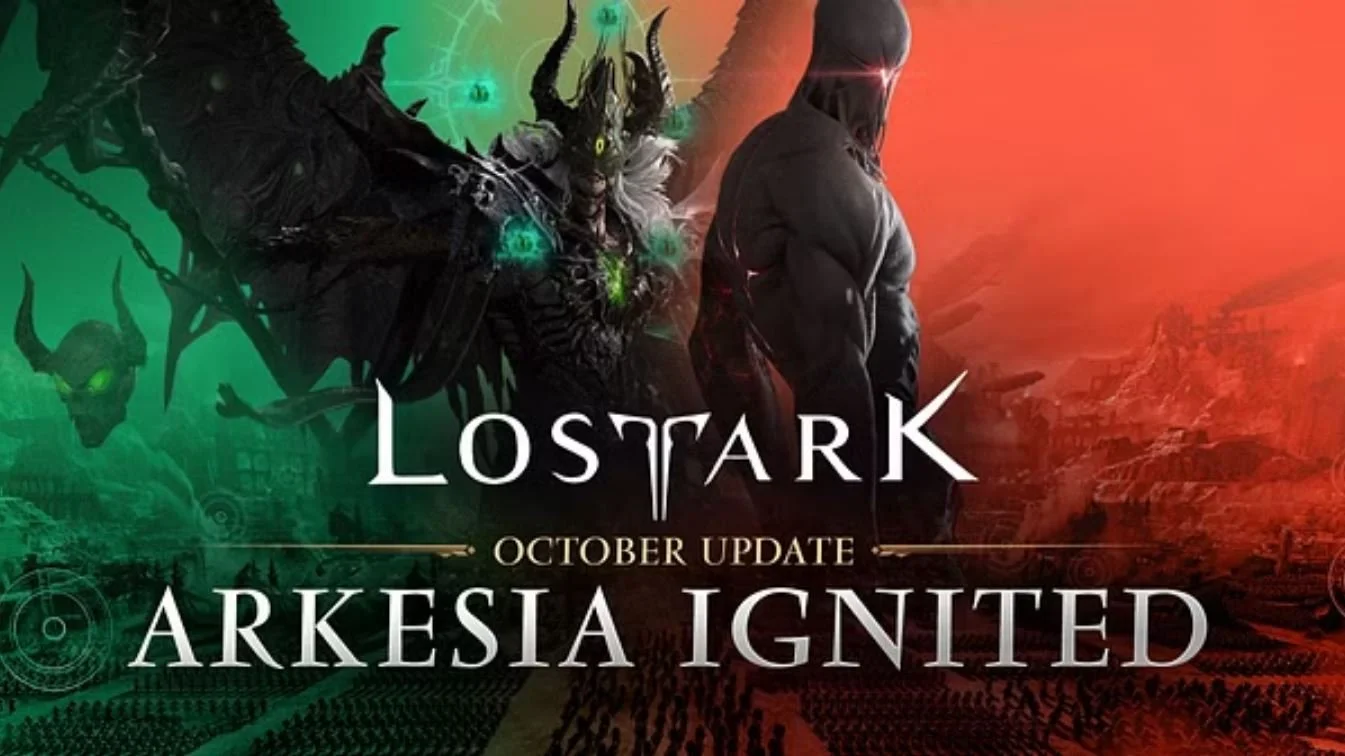PS5 review code provided by Artisan Studios.
Astria Ascending has a lot going for it on paper: it’s developed by Artisan Studios, a Canada-based developer with a penchant for beautiful, hand-drawn artwork, and written by Kazushige Nojima, the man behind the plot of Final Fantasy VII. It’s a remarkable collaboration that would raise the expectations of a JRPG fan.
Unfortunately, Astria Ascending doesn’t reach these expectations in almost any capacity. It struggles to elicit any sense of excitement with its meandering, hard-to-follow story and cheesy writing, and never quite melds its turn-based combat with its 2D exploration in a way that feels satisfying.
Story
Astria Ascending takes place in the world of Orcanon and follows a group of beings known as the demi-gods as they seek to maintain a balance called Harmony. The demi-gods are chosen by a goddess and perish after three years of service. The game picks up with the current slate of demi-gods, led by a woman named Ulan, with only three months left until they die.
It's a challenging place to begin, and the game doesn’t do much to justify starting in such an odd place in the timeline. If these characters have all known one another and lived together for over two years it would be expected that they’d be close or at least know each other well. Instead, they act as though they’ve just met, often making ignorant comments about each other’s cultures or backgrounds.
Each of the demi-gods comes from a different race that lives on Orcanon, and each act focuses on the race of a particular demi-god. The first third of the game seems to be an introduction to the world, but it never really digs into the culture of each race or even spends much time dealing with the personal issues the demi-gods are facing.
Instead, the game falls into a rhythm that gets repetitive very quickly: monsters known as Noise are attacking a town, the demi-gods investigate, and fight some bad guys who have renounced Harmony. It’s an interesting way of pacing the story, but it grew stale after the third almost identical encounter.
But the part that makes it hardest to work through is the quality of the dialogue: it’s bad. Characters will speak for an interminably long time before getting to the point, and when they do it’s usually a “surprise” twist that I’d seen coming several hours earlier. It doesn’t help that most of the demi-gods’ internal chatter reinforce the fact that these characters have really spent no time getting to know one another in almost three years of cohabitation.
Ultimately the story doesn’t feel like it goes anywhere, and the time spent to get to any narrative payoff isn’t enjoyably spent. There’s a larger conspiracy to unravel, but the lazy pacing, repetitive structure, and clunky dialogue do little to incentivize seeing it through.
Gameplay
Astria Ascending offers a fun, if not entirely original, spin on turn-based combat. It’s best compared to games like Bravely Default 2 or Octopath Traveler in that characters can store something called Focus Points to increase battle capability. It’s a necessary tool that encourages strategizing both party layout and character builds.
Each character in Astria Ascending has a different class, ranging from the defender-type Captain to the more mystical Summoner. What’s more, every character can specialize to further expand their list of abilities and boost their stats in interesting ways. This not only changes the character’s appearance in battle but also provides entirely new strategies for taking down enemies.
The progression trees are vast, offering a wide variety of abilities and stat increases that affect combat in fun ways. That said, unlocking new abilities requires a staggering amount of skill points that are never very easy to earn. Defeating a regular enemy only ever earns one point, so Astria Ascending is a game that strongly encourages grinding.
Where the gameplay falters, though, is in the battles themselves. Battles often feel messy, devolving into rampant damage fests in an effort to eliminate enemies before they can take advantage of your team’s weakness. The exception to this is the boss battles, but they’re problematic for a much more frustrating reason.
Almost every boss uses attacks that afflict party-wide status effects, often ones that rest control from the player and turn the battles into a slasher film where the main characters all get picked off one by one. The only way around this is to buy enough immunity accessories to render those attacks impotent, a steep cost that restricts creative strategizing.
Outside of combat Astria Ascending is a bare-bones, 2D platformer with limited exploration. Though never technically bad, the exploration is hampered by an awful in-game map and bland environments. There’s also a surprisingly robust mini-game called J-Ster that is a sort of cross between the Japanese game Go and any monster-dueling card game.
The gameplay ultimately doesn’t make the most of its own systems, spending too much time mired in frustrating, unbalanced combat scenarios and lackluster exploration mechanics. It’s a shame, too, as it sports some of the most interesting skill trees I’ve ever seen; I just never felt compelled to really invest in them.
Audio & Visual
While Astria Ascending’s music is good, it doesn’t mesh well with the sound design or voice-over work. The music often drowns out other sound effects, making it hard to understand what’s happening what someone just said.
But even when putting the music aside, the voice acting leaves much to be desired. The performances are uneven, with certain characters putting in acceptable work while others sound like they’re barely doing more than reading the words off of a page. Many interactions among the demi-gods sound as though they’re not speaking to one another at all.
Bafflingly, certain characters are almost impossible to hear even while using a headset. Alessia, the Summoner class demi-god, speaks so softly for most of her lines that it was genuinely hard to understand what she was saying. I eventually had to turn on subtitles in order to make sure I didn’t miss any important plot details.
The visuals fare better, with some environments standing out as truly stunning pieces of art. Artisan Studios stays true to their artistic roots here, though some of the animation work is a bit awkward when the camera pulls in close. Additionally, many battle animations don’t trigger properly which can be jarring in a particularly difficult battle.
There’s also a strange sexualization that happens with many of the female characters; the women of one particular race wear very little clothing and have accentuated physiques, while almost every woman in the game has gravity-defying breasts. It’s not subtle and adds a tinge of misogyny to a game already replete with casual racism.
What Could Be Better
It’s hard to say what exactly Astria Ascending could do to improve. A more captivating story would go a long way toward making this game better, including a more relatable and compelling cast of characters. It needs to find its hook to keep players interested for the long haul, as most gamers aren’t going to stick with a 30-hour JRPG if it doesn’t capture them in the first few hours.
It could also implement its progression systems better, allowing the player to feel like the decisions they’re making about upgrading their characters is making a difference on the battlefield. Reduce the need for relentless grinding, and make the world more fun to explore when not in battle. Also, change the map from the strange, 3D tableau to something a little more readable.
Verdict
While Astria Ascending sounds good on paper, it doesn’t quite deliver on its promise. With a story that takes too long to get going, characters that don’t inspire an emotional connection, and gameplay that doesn’t make the most of its best systems, Astria Ascending is an unfortunate misfire that never truly ascends to greatness.
